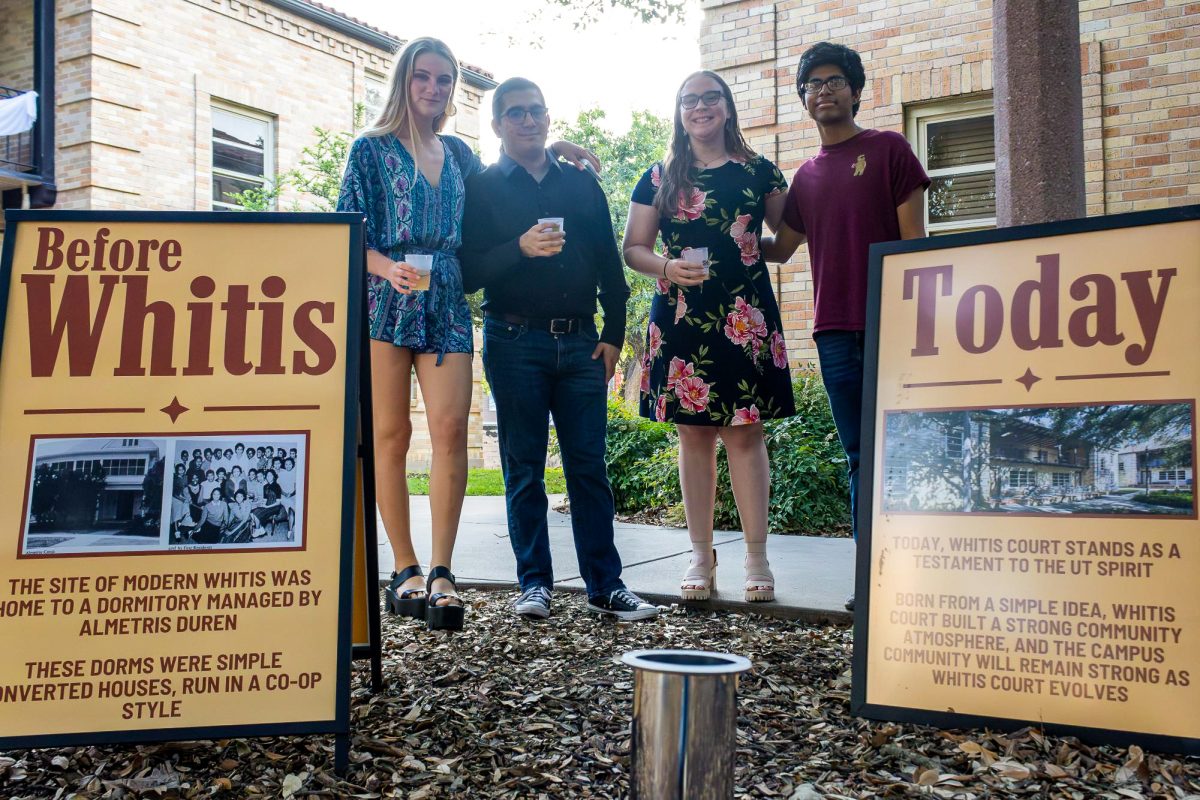UT-Austin history professor Alberto Martínez released an article on Medium on Wednesday with contradicting evidence against UT’s “The Eyes of Texas” History Committee report. Martínez said Civil War Gen. Robert E. Lee inspired the phrase “The eyes of Texas are upon you,” and the song was written for a minstrel show.
The committee’s report, released on March 9, said the song was “written in a racist setting” but was not “overtly racist.” UT President Jay Hartzell formed the committee to study the song’s origins after student athletes and organizations called for its removal over the summer. Hartzell has repeatedly said the song will remain since July 13.
“For decades there have been students and Texans who feel uncomfortable with this song,” Martínez said in the report. “They just knew that it was first sung at a blackface show and was based on a song that mocked Black persons — so that was enough to make some people not sing it. The neglected historical evidence confirms their misgivings. Yet there was no vote at UT, no democratic process at all. Instead UT’s President announced that the song will remain.”
Martínez also said the song copied words, phrases and rhymes of the “racist Levee Song,” better known as “I’ve Been Working on the Railroad,” not just the melody as the report initially said. He also found the song was written the day of UT-Austin’s first minstrel show on May 12, 1903, not when minstrel shows were fading as the report claimed.
“In light of such facts, UT administrators should understand why this song, contrary to the intentions of many, does not generate unity,” Martínez said. “I do believe that people can sing any song they want. However, I recommend that this song not be the official song of our University.”
Martínez said the report “implies” the song wasn’t created for a minstrel show, but his evidence shows otherwise. He said the song copied many aspects of the “Levee Song” and was originally intended to be a parody.
Five phrases from the original “Levee Song” were copied almost completely in “The Eyes of Texas,” Martinez said, including: “I once did know a,” “all de live-long day,” “so uh-ly in de mawn,” “Di-nah, blow yo’ hawn,” and “sing a song o’ the ci-ty.”
The committee’s report said there wasn’t evidence the song’s lyrics “intended to show nostalgia for slavery,” and that the origins of the tune were “unclear.”
The committee’s report said the song was written near the end of the minstrel era, but Martínez said this is not true and the song debuted at the first minstrel show put together by UT students — a fact not mentioned in the committee’s report. He said the song was created for the minstrel show, not as the University’s official song.
“Contrary to UT’s Report, the neglected historical evidence shows that the title of “The Eyes of Texas” was inspired by words about Gen. Robert E. Lee in the Civil War, and that the song was created for UT’s first full-fledged minstrel show, on the day of the show, to make fun of UT’s President, while overall mocking Black persons,” Martínez said. “That is not what the song presently is, and that is not how most singers intend it. But those are its origins.”
Martínez said former UT President William Prather first said the phrase at a speech to UT medical students in 1900 and quoted a story about Lee telling Confederate Gen. John Gregg to charge the enemy during the “battle of the wilderness.” Gregg then told his soldiers, “Attention, Texas brigade! Forward! The eyes of General Lee are upon you!”
The history committee’s report did include this anecdote and said, “no primary source has been found connecting the phrase as something that Lee used.” The committee’s report said the claims of Lee being the inspiration traced back to a 1938 memoir by retired engineering dean T.U. Taylor.
Martínez said Taylor told the story of Lee being the inspiration three other times to The Daily Texan in 1920, 1923 and 1924. Prather’s son said the line was paraphrased from Lee in 1936, and Jim Cannon, one of the original minstrel performers, said it originated from Lee, Martinez said.
“Clearly, beyond any shadow of a doubt, UT’s phrase: ‘The eyes of Texas are upon you,’ originated from the words ‘the eyes of General Lee are upon you,’” Martínez said.
UT spokesperson J.B. Bird said the University stands by the “integrity” of the report released by the history committee, which included historians, academic researchers, historical archivists and scholars.
“The committee searched for the truth in all its work — understanding that others would review their work and arrive at their own conclusions, which is the nature of scholarship,” Bird said.
UT spokesperson J.B. Bird, history committee chair Richard Reddick and Martínez did not immediately respond for comment.
Lauren Girgis and Brooke Ontiveros contributed to this report.





















